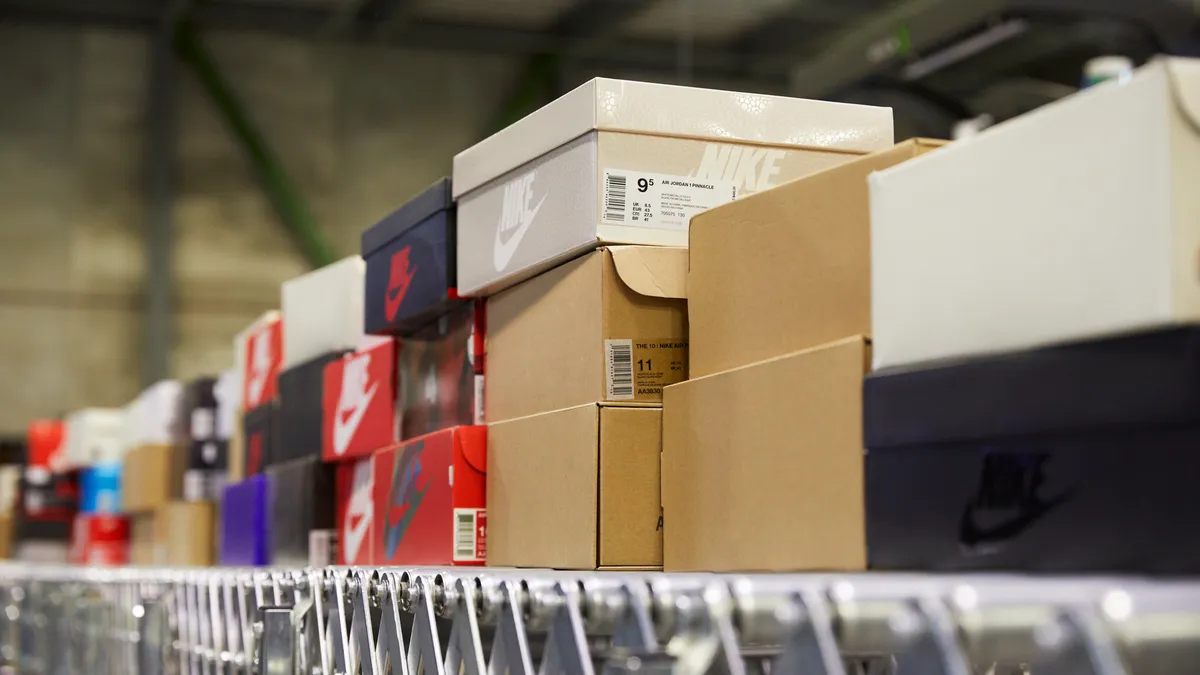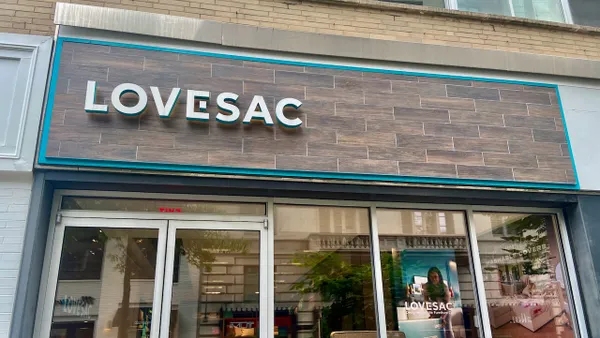After Twitter users pointed out that StockX removed its “Verified Authentic” tag on shoes last week, the resale marketplace released a statement on its Twitter account Thursday confirming that it changed the name of its verification process, noting that “verification is the new authentication.” The company also linked to its webpage about verification.
The retailer said although product authenticity is still “core to our analysis,” the company thinks the verification process is “a better reflection of our broader value proposition,” per its statement.
StockX — which says it has reviewed more than 35 million products since it started — also shared a breakdown of reasons why products have been rejected over the last 12 months. The most common cause for rejection (24% of the products) was manufacturing defects, while 16% were considered used products and 14% were deemed fake.
When asked by Retail Dive to confirm if products sold on StockX are still authenticated, the company reiterated its public statement, which says the “comprehensive approach remains unchanged.”
The retailer has had battles with counterfeit claims this year. Nike added counterfeit and false advertising claims to a lawsuit against StockX in May after it said it obtained four pairs of fake sneakers from the marketplace that had a “100% Authentic” guarantee.
Authentication isn’t something only StockX has dealt with, though. Luxury reseller The RealReal has also faced accusations about its authentication process, settling an investor lawsuit last November for $11 million which alleged that the company’s authentication process “fell far short of its description,” and therefore hurt investors.
StockX also conducted a set of layoffs this year as footwear sales declined across the industry and inflation started putting pressure on consumers. The company laid off 8% of its workforce in June due to “macroeconomic challenges,” and then let go of another 80 employees earlier this month “to align with our current organizational priorities.”














